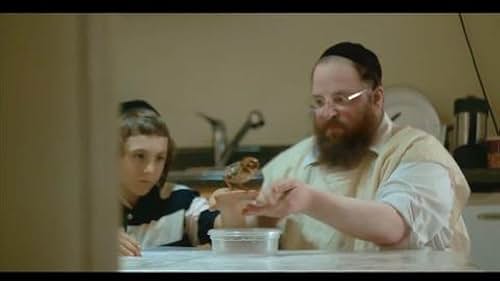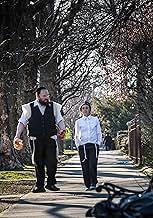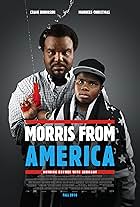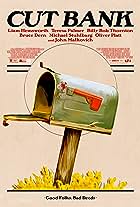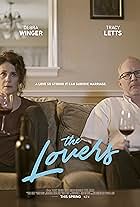IMDb RATING
6.6/10
2.6K
YOUR RATING
Within Brooklyn's ultra-orthodox Jewish community, a widower battles for custody of his son. A tender drama performed entirely in Yiddish, the film intimately explores the nature of faith an... Read allWithin Brooklyn's ultra-orthodox Jewish community, a widower battles for custody of his son. A tender drama performed entirely in Yiddish, the film intimately explores the nature of faith and the price of parenthood.Within Brooklyn's ultra-orthodox Jewish community, a widower battles for custody of his son. A tender drama performed entirely in Yiddish, the film intimately explores the nature of faith and the price of parenthood.
- Awards
- 7 wins & 18 nominations
Meir Ber Schwartz
- The Ruv
- (as Meyer Schwartz)
Melissa Weisz
- Bayla
- (voice)
Storyline
Did you know
- TriviaDirector Joshua Z Weinstein, who is neither a member of a Haredi community nor a speaker of Yiddish, used a translator on set.
- SoundtracksIvdu Es Hashem Mit Simcha
Written and performed by Michoel Schnitzler
Courtesy of Michoel Schnitzler
Featured review
Struggle is something that is universal. Adversity doesn't care who you are, where you have come from, or even who you know. Granted, it can be relative, but no matter who you are, road blocks are still road blocks. Documentarian and first-time narrative director Joshua Z. Weinstein takes this theme but looks at it from a different direction with "Menashe," featured at this year's Dallas International Film Festival and now getting a wider release.
The title character is played by Menashe Lustig and is a widower who is just trying to get by in his ultra-orthodox Jewish community. He is still mourning the loss of his wife a year later while constantly chasing his bills working at a local Jewish market, and he is also dealing with the fact that he does not have custody of his son, Rieven (Ruben Nidorski) due to his religious beliefs that children must be raised in a two-parent household. Until he remarries, Rieven has to live with his brother, Eizik (Yoel Weisshaus), and his family. Menashe has always been seen as the lesser of his siblings, so he embarks on a journey of self-discovery and responsibility just to try for a normal life.
Weinstein takes his documentary-style of filming (with no score and a lot of steady-cam shots) and applies it here, which gives it an intimate feel that really enhanced my emotional investment into his story (which he also co-wrote with Alex Lipschultz). In my comments to our vendor after the screening, I used the phrase "both heartbreaking and heartwarming," and this is the best way I can describe "Menashe". Lustig plays the lead character in a way that even though his struggles are specific to a demographic, there are themes of independence, responsibility, and family that each and every one of us can identify with and feel for him during. His work with Nidorski is very organic, and it works on every level. Almost the entire film is translated from Yiddish, but as real and powerful as this story is, the subtitling bothered me even less than it normally does.
It is true that this film may not be seen as "for everyone" due to the community that it takes place in, but I fully and whole-heartedly disagree. Its universal themes are presented in a way that its context is well-explained so that the audience can see why the traditions are what they are. Much like "Donovan" earlier this year, "Menashe" is an independent film that tells its story in an honest and grounded way that deserves to be seen by as large of an audience as possible.
The title character is played by Menashe Lustig and is a widower who is just trying to get by in his ultra-orthodox Jewish community. He is still mourning the loss of his wife a year later while constantly chasing his bills working at a local Jewish market, and he is also dealing with the fact that he does not have custody of his son, Rieven (Ruben Nidorski) due to his religious beliefs that children must be raised in a two-parent household. Until he remarries, Rieven has to live with his brother, Eizik (Yoel Weisshaus), and his family. Menashe has always been seen as the lesser of his siblings, so he embarks on a journey of self-discovery and responsibility just to try for a normal life.
Weinstein takes his documentary-style of filming (with no score and a lot of steady-cam shots) and applies it here, which gives it an intimate feel that really enhanced my emotional investment into his story (which he also co-wrote with Alex Lipschultz). In my comments to our vendor after the screening, I used the phrase "both heartbreaking and heartwarming," and this is the best way I can describe "Menashe". Lustig plays the lead character in a way that even though his struggles are specific to a demographic, there are themes of independence, responsibility, and family that each and every one of us can identify with and feel for him during. His work with Nidorski is very organic, and it works on every level. Almost the entire film is translated from Yiddish, but as real and powerful as this story is, the subtitling bothered me even less than it normally does.
It is true that this film may not be seen as "for everyone" due to the community that it takes place in, but I fully and whole-heartedly disagree. Its universal themes are presented in a way that its context is well-explained so that the audience can see why the traditions are what they are. Much like "Donovan" earlier this year, "Menashe" is an independent film that tells its story in an honest and grounded way that deserves to be seen by as large of an audience as possible.
- Obi_Bamm_Karaoke
- Aug 28, 2017
- Permalink
- How long is Menashe?Powered by Alexa
Details
- Release date
- Countries of origin
- Official site
- Languages
- Also known as
- 我和我的不完美老爸
- Filming locations
- Production companies
- See more company credits at IMDbPro
Box office
- Gross US & Canada
- $1,703,036
- Opening weekend US & Canada
- $62,078
- Jul 30, 2017
- Gross worldwide
- $1,962,265
- Runtime1 hour 22 minutes
- Color
- Sound mix
- Aspect ratio
- 2.00 : 1
Contribute to this page
Suggest an edit or add missing content


